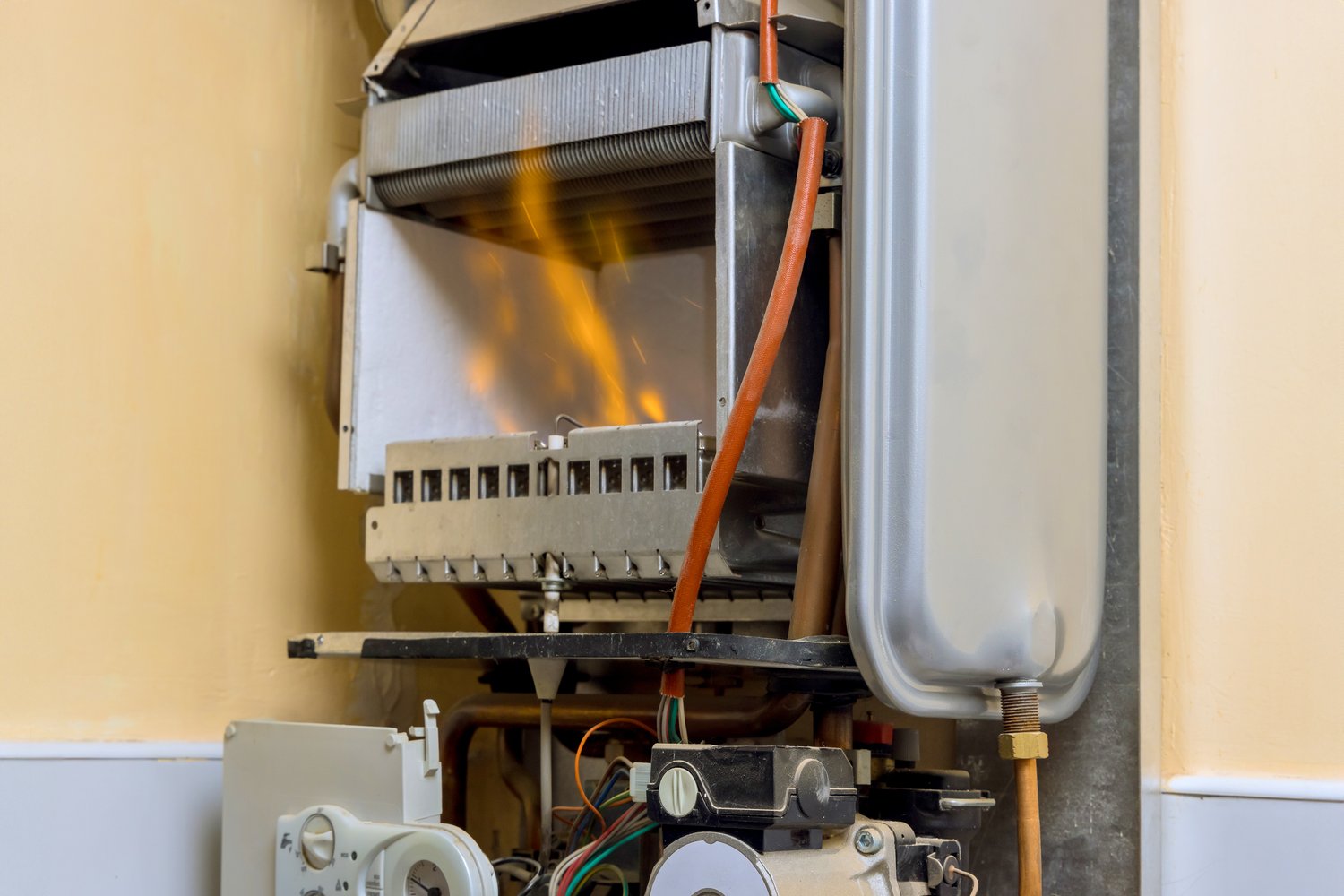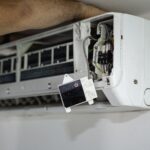Understanding chimney systems for condensing gas boilers
Chimneys play a crucial role in the efficient operation of condensing gas boilers. They safely remove combustion products and excess moisture from your home. Modern chimney systems are designed to withstand corrosive condensate and high temperatures. There are two main types of chimneys for condensing gas boilers: steel and plastic. Each type has its own advantages and is suitable for different installations.
Steel chimneys are known for their durability and heat resistance. They can withstand temperatures up to 200°C (392°F). These chimneys are ideal for high-efficiency boilers that produce less condensate. Plastic chimneys, on the other hand, are lightweight and easy to install. They are perfect for low-temperature appliances, typically operating below 120°C (248°F).
[Chimneys] https://onninen.pl/en/products/Heating-systems/Chimneys come in various diameters, ranging from 60mm to 300mm. The correct size depends on your boiler’s output and the length of the flue run. It’s essential to consult with a professional to determine the appropriate chimney size for your specific installation.
When selecting a chimney system, consider factors such as local building regulations, boiler type, and installation location. Some areas may require specific materials or configurations. Always ensure that your chosen chimney system is compatible with your condensing gas boiler to maintain safety and efficiency.
Proper installation of chimney systems is crucial for optimal performance. This includes correct positioning, adequate support, and proper sealing of joints. Regular maintenance, including annual inspections and cleaning, helps prevent blockages and ensures continued safe operation of your heating system.
Benefits of steel chimneys for condensing gas boilers
[Steel chimneys for condensing gas boilers] https://onninen.pl/en/products/Heating-systems/Chimneys/Steel-chimneys-for-condensing-gas-boilers offer numerous advantages for homeowners and installers. These robust systems are highly resistant to corrosion, thanks to their stainless steel construction. This durability ensures a long lifespan, often exceeding 25 years with proper maintenance.
Steel chimneys can handle high temperatures, making them suitable for a wide range of boiler types. They maintain structural integrity even in extreme conditions. This heat resistance also allows for more flexible installation options, as steel chimneys can be placed closer to combustible materials than their plastic counterparts.
The smooth inner surface of steel chimneys promotes efficient flue gas flow. This reduces the risk of condensate buildup and improves overall system performance. Steel chimneys also offer excellent fire resistance, providing an additional layer of safety for your home.
Installation of steel chimneys is straightforward, with many systems featuring push-fit connections. This design allows for quick assembly and disassembly when needed. Steel chimneys are available in various configurations, including concentric and twin-pipe systems, to suit different installation requirements.
While steel chimneys may have a higher initial cost compared to plastic options, their longevity and durability often make them a cost-effective choice in the long run. They require minimal maintenance, typically needing only annual inspections to ensure optimal performance.
Advantages of plastic chimneys for condensing gas boilers
[Plastic chimneys for condensing gas boilers] https://onninen.pl/en/products/Heating-systems/Chimneys/Plastic-chimneys-for-condensing-gas-boilers have gained popularity due to their unique benefits. These lightweight systems are typically made from polypropylene, a material highly resistant to acidic condensate. Plastic chimneys can withstand continuous exposure to pH levels as low as 3.0 without degradation.
The lightweight nature of plastic chimneys makes them easy to handle and install. A typical 1-meter section of 60mm diameter plastic flue pipe weighs only about 0.5 kg (1.1 lbs). This reduced weight puts less stress on supporting structures and simplifies the installation process, especially in tight spaces or existing buildings.
Plastic chimneys offer excellent thermal insulation properties. This characteristic helps maintain flue gas temperatures, reducing the risk of condensation within the chimney system. The smooth inner surface of plastic flues also promotes efficient gas flow, further enhancing system performance.
These chimney systems are highly versatile and can be easily cut to size on-site. This flexibility allows for precise fitting in various installation scenarios. Plastic chimneys are available in a wide range of diameters and configurations, including concentric and twin-pipe systems, to suit different boiler types and installation requirements.
While plastic chimneys have a lower temperature tolerance compared to steel systems, they are perfectly suited for modern condensing boilers. These appliances typically operate at lower flue gas temperatures, usually below 120°C (248°F). The lower cost of plastic chimneys also makes them an attractive option for budget-conscious homeowners.





